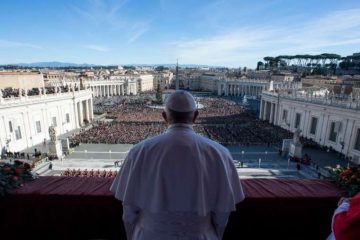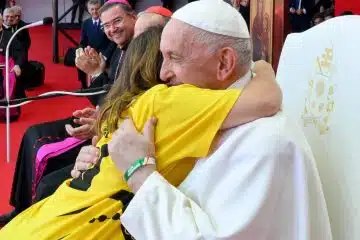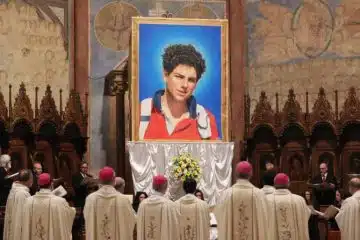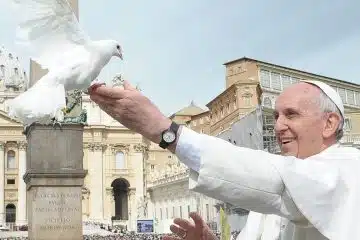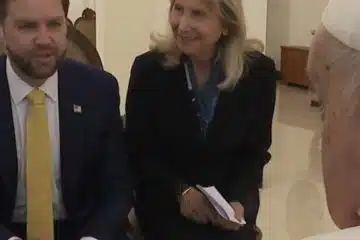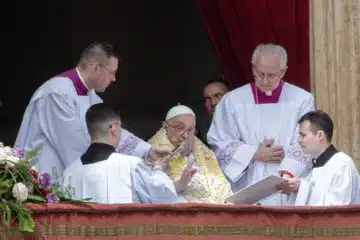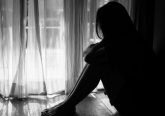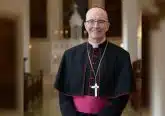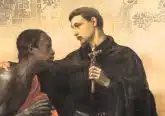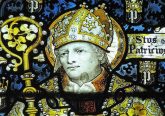Human trafficking topic of conference at UD
Friday, November 13, 2009
By David Eck
DAYTON DEANERY — The more than 300 people in a University of Dayton auditorium were stone silent, some with anguished expressions, as Theresa Flores shared her story of becoming a sex slave at age 15.
Now a UD graduate and licensed social worker, Flores was among the panelists at a public forum that was part of the Dayton Human Trafficking Accords international conference Nov. 9-10 at UD.
The conference brought together law enforcement officials, academic experts and the public “for the purpose of stirring society’s conscience to action against trafficking and slavery,” said Mark Ensalaco, director of UD’s human rights program. Ohio Attorney General Richard Cordray addressed a working session of the conference about stopping trafficking in Ohio.
Flores is a face of human trafficking.
For two years she was drugged, raped and tortured in Detroit by a group of boys and men who manipulated her through threats and blackmail. She was forced to sneak out of her upscale suburban home at night or was picked up after school for sex. One time she was essentially put on display for a group of men and “auctioned off,” not knowing if she would live or die.
It was a secret she kept for 20 years.
 “I was not immune,” said Flores, who wrote The Sacred Bath: An American Teen’s Story of Modern-Day Slavery. “I was just a normal kid from the suburbs with a nice family.”
“I was not immune,” said Flores, who wrote The Sacred Bath: An American Teen’s Story of Modern-Day Slavery. “I was just a normal kid from the suburbs with a nice family.”
She is now the director of development for Gracehaven, a safe home in Dublin, Ohio, for girls under the age of 18 who have been victims of commercial sexual exploitation.
“I decided to turn my hell into my heaven,” she said. “I have dedicated my life to this cause. I don’t want it to happen to anyone else.”
Humans typically are trafficked for sexual and labor activities.
In her keynote address, Kristyn Peck Williams, program support coordinator for the Anti-Trafficking Services Program for the United States Conference of Catholic Bishops (USCCB), said the problem is global.
The U.S. State Department estimates that some 800,000 people are trafficked into slavery within or across national boundaries annually, including the United States.
“As many as 175,000 people each year are trafficked into the United States,” Williams said. “Since April of 2006, the USCCB has served 1,408 survivors, including 812 female adult and 36 child trafficking victims. Seven of those foreign national survivors of trafficking were here in the State of Ohio. What this tells us is that there are many more throughout the nation and here in Ohio, who need our help.”
The USCCB, through a contract with the U.S. Department of Health and Human Services, provides services to foreign national survivors of trafficking in the United States and its territories. This is done through subcontracts with more than 100 local social service agencies, Williams said.
There is no typical victim profile, she said. Among those the USCCB has served 71 percent were trafficked for labor, 21 percent for sex and eight percent for both.
“Victims are diverse in age, race, class, gender, religion and culture with multiple, varied needs,” Williams said. “What they have in common is their desire to seek a better opportunity, and their perception of migration as the means to achieve that opportunity. Those who are rescued or who escape as survivors share an internal strength which kept them alive.”
She spoke of the survivors.
José was kept isolated with other ranch hands far from civilization without proper food or clothing. He was unable to leave. A good samaritan helped him.
Rosa, a teenager in a small Mexican village, trusted a man who said he would get her a job in a restaurant in Texas so she could send money back to her family. Once they arrived in Texas, he forced her and other women to sell drinks to male customers at area cantinas. The women were regularly threatened, beaten and raped to keep them from escaping.
Dimitri, a 17-year-old high school student in Russia, came to the United States for a summer job. He ended up sleeping no more than four hours a night in a room guarded by armed men. He was forced to work in a hotel and turn over all his earnings.
“As their stories illustrate, first and foremost, trafficking victims need safety and security,” Williams said. “Many are terrified of the traffickers and display symptoms of post-traumatic stress disorder. Others may develop a trauma bond with the trafficker and protect their abuser. Providing survivors with a secure, safe and nurturing environment is crucial to ensuring their return to society as contributing members.”
Sharla Musabih is the founder and executive director of United Hope, an advocacy group for victims of human trafficking. While raising her family in the United Arab Emirates, Musabih, who grow up on Bainbridge Island, Wash., began working with victims of domestic violence and later started investigating human trafficking involving young children being exploited as jockeys in camel races. Eventually she was able get the practice outlawed, and 1,500 children were repatriated.
Today her organization’s focus includes empowering young girls and women from poor areas to protect themselves from exploitation and trafficking.
Musabih moved back to the United States about 18 months ago, a self-imposed exile because of concerns for her safety in Dubai.
Panelists used their stories and data to urge others to get involved in an effort to end trafficking.
“When there is injustice happening in our country and in the world we should be disturbed,” said Celia Williamson, a University of Toledo professor and activist who developed the Lucas County Human Trafficking Coalition in Ohio. “It’s about you being brave and bold enough to make a difference.”
David Eck can be reached at [email protected].


